There might be times that you'll find yourself needing to bring more on your trip than you can fit inside of your 5th wheel. If you are wondering if you can tow a trailer behind your camper, we can help you. We researched towing procedures and towing laws so that you'll know for sure what you can and cannot do.
Towing a trailer behind a camper or 5th wheel is known as "triple towing." This form of towing is legal in many states, but certain rules and regulations apply. These regulations might include:
- Whether passengers can be aboard
- Size limitations
- Specific driving rules for safety
Now that we know that this sort of towing is permissible in certain locations, we'll take a closer look at the other regulations surrounding it. You might also be wondering if a 5th wheel is better than a travel trailer or if you can sleep in an RV while it's being driven. For the answers to these questions and more, read ahead in this post and see what we've uncovered in our research.
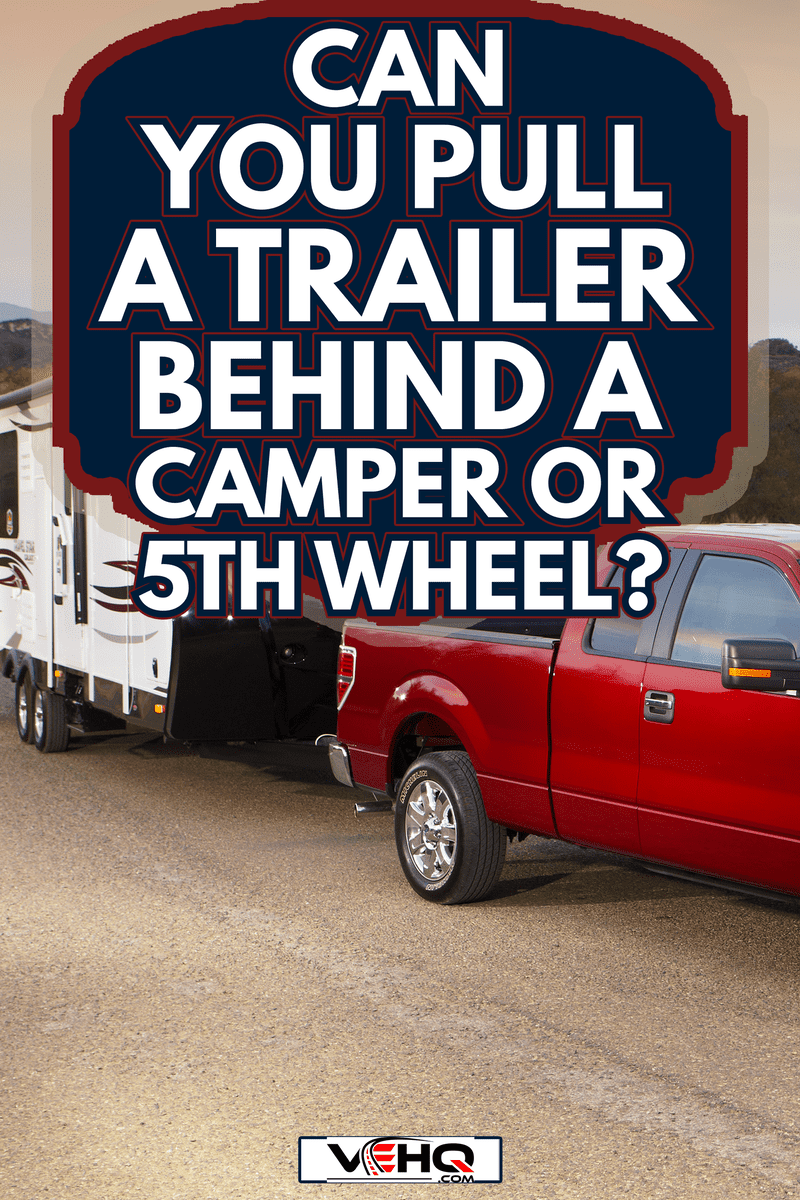
The Regulations Surrounding Triple Towing
When planning your route, you should know the triple towing laws for each state that you'll be traveling through. Some states won't allow it at all, which we'll cover ahead in this post. For now, we'll cover some of the regulations you might encounter.
Whether Passengers Can Be Aboard
Some states that allow triple towing will require that passengers can only ride in the tow vehicle. Meaning, that if you have a truck that's towing an RV that is towing a toy hauler, passengers would be prohibited from riding in the RV.
Size Limitations
The overall combined vehicle length is governed in some states. If you are over 40 feet long in California, you'll need a special endorsement on your license. Arizona has a maximum combined length of 65 feet for two vehicles, and only allows for a 5th wheel to be the middle vehicle.
Texas has an overall length capped at 65 feet.
Specific Driving Rules For Safety
Some states will regulate speed for triple towing, while others, like Wisconsin, will have you apply for a special permit to tow in this manner.
In Which States Is Triple Towing Legal?
As we stated earlier in this post, triple towing isn't legal in every U.S. state. There are a good number of them that have some pretty strict punishments if you are caught.
When traveling across the country, it's a great idea to know which states will allow for this practice. That way, you can adjust your route accordingly or figure out a different way to haul all of your belongings.
As of this writing, the states that allow for triple towing are:
- Alaska
- Arizona
- Arkansas
- California
- Colorado
- Idaho
- Illinois
- Indiana
- Iowa
- Kansas
- Kentucky
- Louisiana
- Maryland
- Michigan
- Minnesota
- Mississippi
- Missouri
- Montana
- Nebraska
- Nevada
- New Mexico
- North Dakota
- Ohio
- Oklahoma
- South Dakota
- Tennessee
- Texas
- Utah
Altogether, 28 states allow for triple towing. But as we mentioned earlier in this post, each state will have a different set of limitations for this style of towing. Know what those limits are before you commit to any route!
Is A 5th Wheel Better Than A Travel Trailer?
If you've never pulled a camper before, you might have some questions about your options. The two most popular styles are 5th wheels and travel trailers. Though they share many similarities, some differences between them are worth discussing.
A 5th wheel is larger, heavier, and has higher ceilings. These are generally too large to be pulled by anything but powerful trucks, though there are some models built light enough for smaller pickups to tow.
Travel trailers are smaller, more compact, and will not usually have all the creature comforts as a 5th wheel would. They can be towed by almost any truck, with the lightest models able to be towed by most SUVs.
Whether you should get a travel trailer or a 5th wheel will depend on your needs as well as the towing capacity of your vehicle.
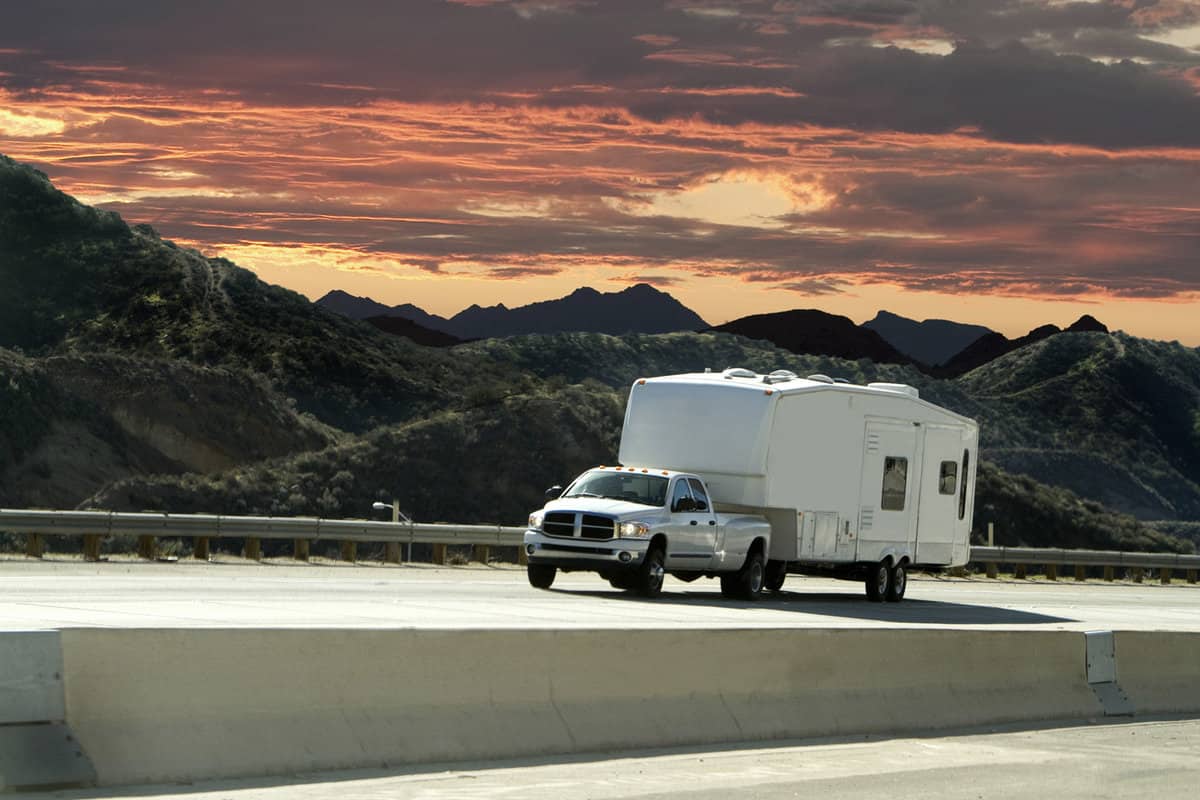
Can You Sleep In An RV While Driving?
It can be tempting to nap while someone else is driving the RV on a long stretch. There are comfortable beds aboard for sleeping, but is it ok to settle into one while the RV is in motion?
Every state requires that the passengers aboard an RV or 5th wheel be buckled in at all times while the vehicle is in motion. If there is an accident, you won't be offered much in terms of protection if you are laying in a bed. Cooking, walking around the RV, or even using the bathroom are also unlawful if the RV is moving.
If you need to engage in anything that requires you to get out of your seat, you should only do so when the RV is safely parked. Of course, you can always nap while seated in one of the passenger seats. Just stay buckled in!
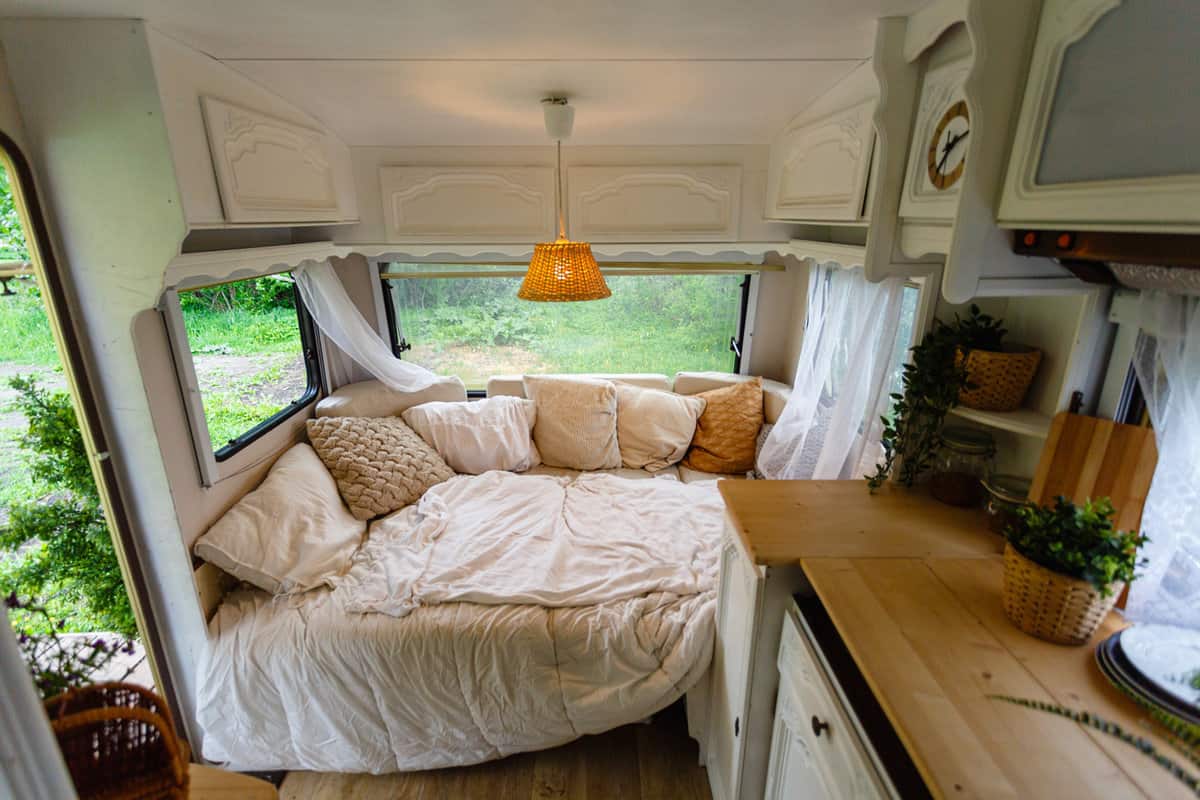
Do You Need A CDL To Drive An RV?
Whether or not you'll need a CDL to drive an RV will depend on a few variables. Let's take a look at each one and give some explanation as to why you might need a CDL.
The Overall Length Of The RV
Though not typically a factor, some states will require a CDL if the RV is over a certain length. As of this writing, only Wisconsin has this listed as a criterion. They will require a CDL if the RV is longer than 45 feet.
Weight Of The RV
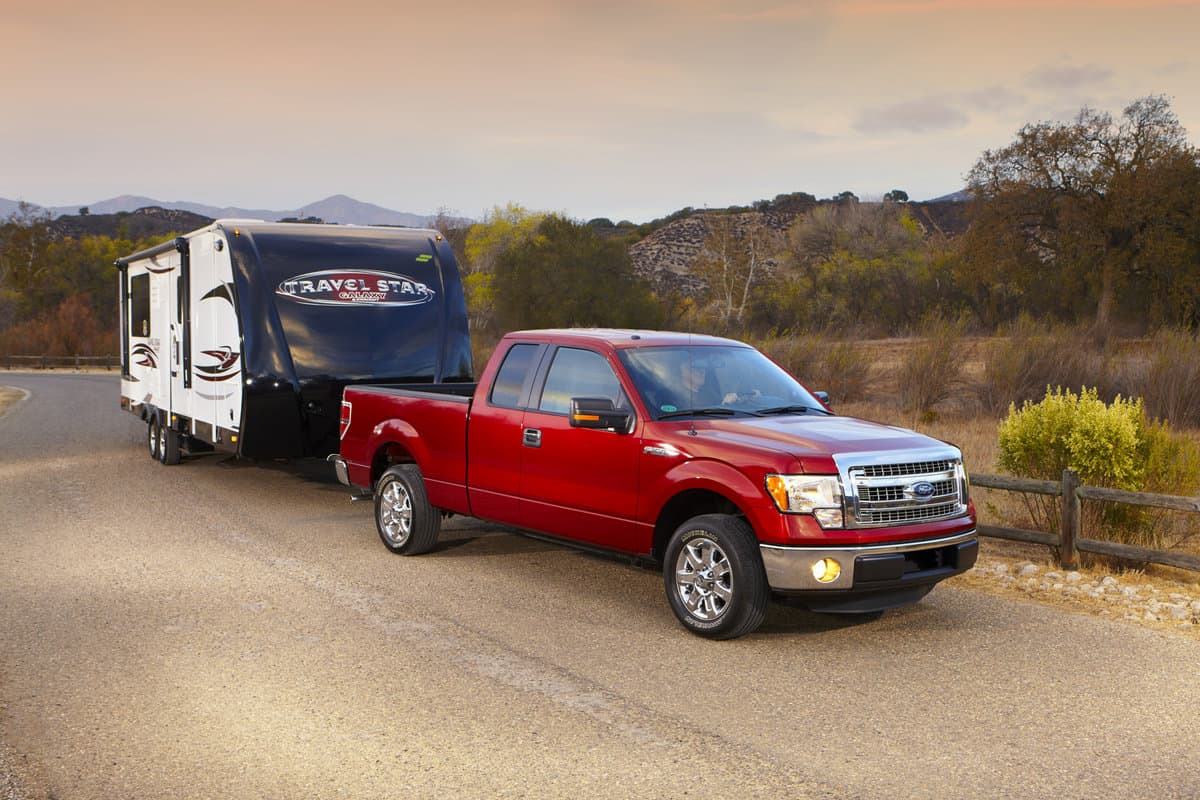
The weight limitations include not just the curb weight of the RV but also the weight of everything on board. In addition, any weight you might be towing behind it needs to be factored in.
Arkansas, Hawaii, Kansas, Maryland, New York, Pennsylvania, South Carolina, Texas, Washington D.C., and Wyoming all require at least a Class C license if the total weight is over 26,000 pounds. Illinois requires a CDL for a combined weight of over 16,000 pounds.
These weight limits are subject to change with the passage of new legislation. Please consult the DMV of any state you are driving through for their latest limitations.
Most Importantly, The State That You'll Be Driving The RV Through
Each state has its laws. Before you head out in your RV for a trip out of your home state, know the laws of the terrain you'll be passing through. Though if you keep under certain limitations, you shouldn't have a problem at all without a CDL.
If you want to be cautious, you can travel throughout all 50 states in an RV without getting a CDL if you keep two things at a minimum—should the RV be 40 feet or less and has a total weight of 16,000 pounds or less, you will be able to travel the country operating it without a CDL.
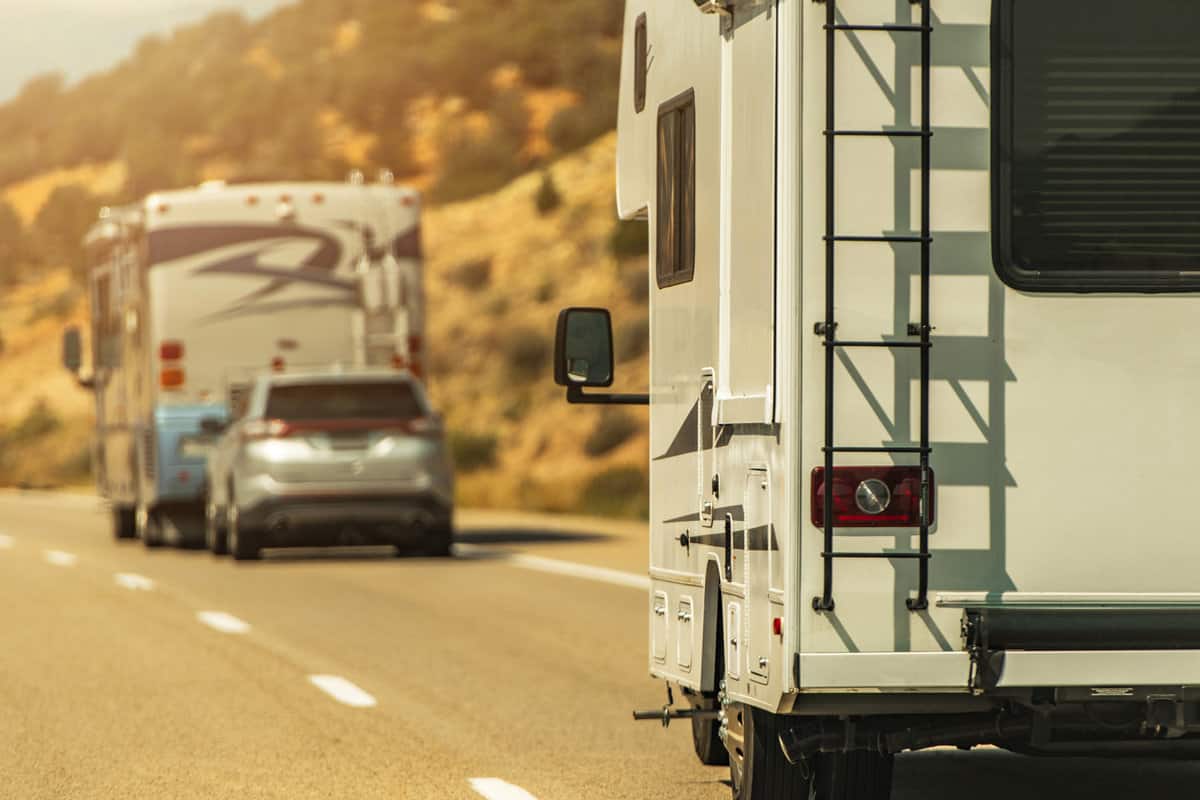
Final Thoughts
Towing a smaller trailer behind your 5th wheel or camper will enable you to get some of your adult recreational vehicles from point A to point B when you travel.
Be aware of the states that allow this practice, as nearly half of them have made doing so illegal. Be mindful of towing capacities as well, as overloading any of the vehicles in this manner will lead to expensive damage and potential accidents. Travel safe!
We hope this post on towing trailers behind a 5th wheel answered your questions. For more helpful information, we suggest reading the following posts:
Can You Tow An All-Wheel-Drive Car Behind A Camper?
Do You Need A Diesel Truck To Pull A 5th Wheel [Including 5th Wheel & Pick-up Models]
Can A GMC Canyon Pull A Travel Trailer? [Towing Capacity Numbers]
